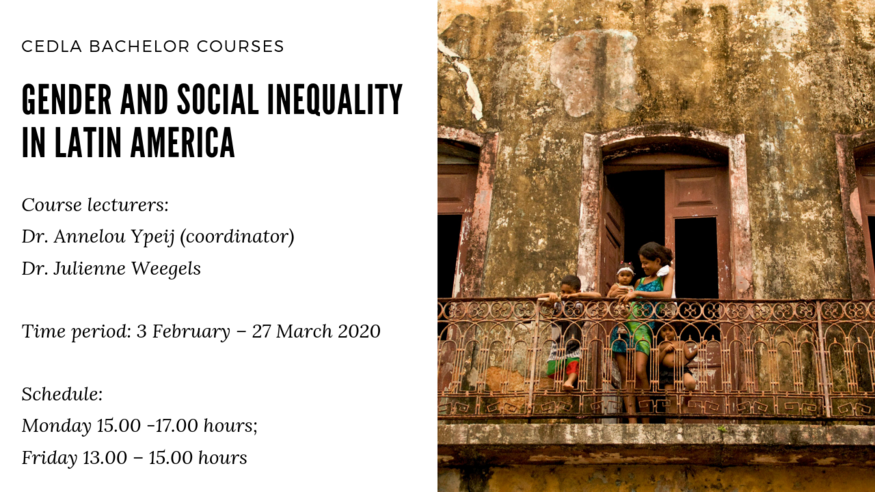Register now!

Course lecturers: Dr. Annelou Ypeij (coordinator) and Dr. Julienne Weegels
Time period: 3 February – 27 March 2020
Schedule: Monday 15.00 -17.00 hours; Friday 13.00 – 15.00 hours
Course load: 6 EC
UvA Course Catalogue Number: 137221026Y
MORE INFORMATION
In the last twenty years gender, class and ethnic relations in Latin America have been greatly transformed within the context of globalization processes and reforms. Restructured labour markets, new economic opportunities and increasing (re)migration flows have meant new challenges and new opportunities in the daily lives of women and men. From an intergenerational perspective, many families have experienced upward social mobility, especially in the recent period that several Latin American economies have been growing. These social transformations have not only led to a repositioning of women and men in relation to each other, but also to new class and ethnic self-identifications. Conceptions of femininity, masculinity and ethnicity are constantly being negotiated, reconstructed and are acquiring new meanings.
This course investigates the dynamics of gender relations in Latin America, mainly in the urban areas and studies them at the intersection of class, ethnicity and sexuality. Concepts and case studies will be presented that will offer examples of daily experience. Themes that will be touched upon are: social mobility/poverty, ethnicity, femininities and masculinities, machismo, the nuclear and matrifocal family systems, migration, gendered violence and sexuality.
PICTURE License![]() Some rights reserved by JAIRO BD
Some rights reserved by JAIRO BD
Van 3 februari om 15:00 t/m 27 maart 2020 om 13:00

